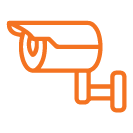
Home security systems provide comprehensive protection for your residence, deterring intruders and safeguarding your property.

Access control systems are essential for managing and regulating who enters your premises, ensuring only authorized individuals have access.

Reliable support services are crucial for the effective operation of security systems, offering assistance with installation, troubleshooting, and maintenance.
Founded in 2005 and headquartered in the United Arab Emirates (UAE), Hassoun Group is a distinguished telecommunications and security company with a global presence. As a premier distributor, system integrator, and marketing representative, Hassoun has solidified its reputation as a key player in the international industry. Specializing in CCTV solutions, telephone systems, time attendance and access control systems, and smart home solutions, the company has extended its reach beyond the GCC region to markets in India, China, and worldwide. With a dedicated workforce of over 100 professionals, Hassoun is committed to tackling complex technology challenges for a diverse clientele. The company has successfully executed numerous prestigious projects and serves an esteemed client list that includes government agencies, police, military, and various commercial and industrial sectors. view more
 Branches
Branches
 Trusted People
Trusted People
Security surveillance systems monitor and protect properties with real-time video feeds and recordings for comprehensive coverage and protection.

Access control systems restrict building entry to authorized individuals, enhancing security by preventing unauthorized access and ensuring safety.

Modern telephone systems are crucial for efficient internal communication, enhancing productivity, collaboration, and ensuring seamless connectivity.

Smart home security integrates smart locks, cameras, and alarms for advanced residential safety through cutting-edge technology and interconnected devices.
Choose us for cutting-edge Security Surveillance, advanced Access Control Systems, reliable Telephone Systems, and seamless Smart Home Security. We offer innovative, efficient, and secure solutions tailored to your unique needs.
 Trusted Secuirty
Trusted Secuirty
 Product Quality
Product Quality
 Best Services
Best Services
 Best Support
Best Support